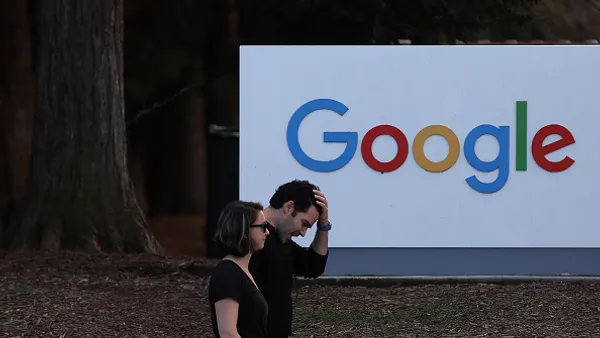Dive Brief:
- The Trade Desk reported revenue of $377 million in Q2 2022, a 35% year-over-year increase, per a news release. The company outpaced worldwide programmatic advertising growth, founder and CEO Jeff Green said on an earnings call.
- Green attributed some of the company's growth to the signing of new and expanding joint business plans that cover many verticals, including automakers, tech companies and major CPGs. The Trade Desk has recently partnered with Disney, Amazon Web Services and Vox Media around Unified ID 2.0 (UID2) and expanded its partnership with Albertsons’ retail media arm.
- The Trade Desk expects continued growth as connected TV (CTV) surges and advertisers shift priority from walled gardens to the open internet amid pressure on Google, both due to antitrust investigations and concerns over its changing plans to remove third-party cookies from Chrome.
Dive Insight:
The Trade Desk had a standout quarter in Q2 and executives believe that the growth will continue, despite a tough macroeconomic environment and the slowing growth of competing ad platforms. As marketers continued to prioritize data-driven advertisers, the company sees itself as "the default DSP for the open internet and connected TV," according to CEO Green.
Along with increased partnerships with various players in the ad industry, Green attributed the company's growth and future prospects to a surge in CTV spend that is coming at the expense of walled gardens that previously could be unfair to advertisers because of their dominance of content and ad markets.
"The draconian tactics of walled gardens are now being challenged because of the competitive nature of CTV as advertisers increasingly prioritize premium CTV content," he said on the earnings call.
Continuing his critique of Google, Green called out the increased regulatory pressure on the tech giant around possible antitrust violations in its ad business, contrasting an objectivity to the CTV market that has made the Trade Desk more attractive to major advertisers.
The Trade Desk has long positioned itself as an alternative to Google's walled garden. Earlier this year, the company introduced OpenPath, a product that aims to provide advertisers with more direct access to premium inventory from top publishers like The Washington Post and Reuters, and winded down its use of Google’s Open Bidding tool.
On the earnings call, Green said that Google's shifting plans around deprecating third-party cookies is actually helping its push to develop and deploy UID2, which has seen recent integrations with Disney, Amazon Web Services and Vox Media.
"The uncertainty around Google’s decision making is only hardening the resolve of the rest of the industry to develop new approaches to identity," Green said.
Green also took time to discuss one of the coming changes to the CTV landscape: Netflix's launch of an ad-supported tier, which is now expected in early 2023. The executive said that The Trade Desk has had "many constructive conversations" with the streamer over the last few months and called its choice of Microsoft as ad partner instead of Google positive news for the open internet. Green also suggested that The Trade Desk could help Netflix's demand-side needs further down the line.
"By partnering with Microsoft on the supply side of the digital advertising equation, Netflix controls its own destiny," he said. "Once they’ve done the work on the supply side, driving as much demand as possible toward those ad impressions will come next."
Along with CTV, The Trade Desk has benefited from the surge in retail media advertising. The company in June partnered with Albertsons Media Collective to help the grocer's retail media arm to enable audience and measurement solutions across the open internet to help advertisers, including PepsiCo, Unilever and GroupM, better connect ad campaigns to customer sales.














